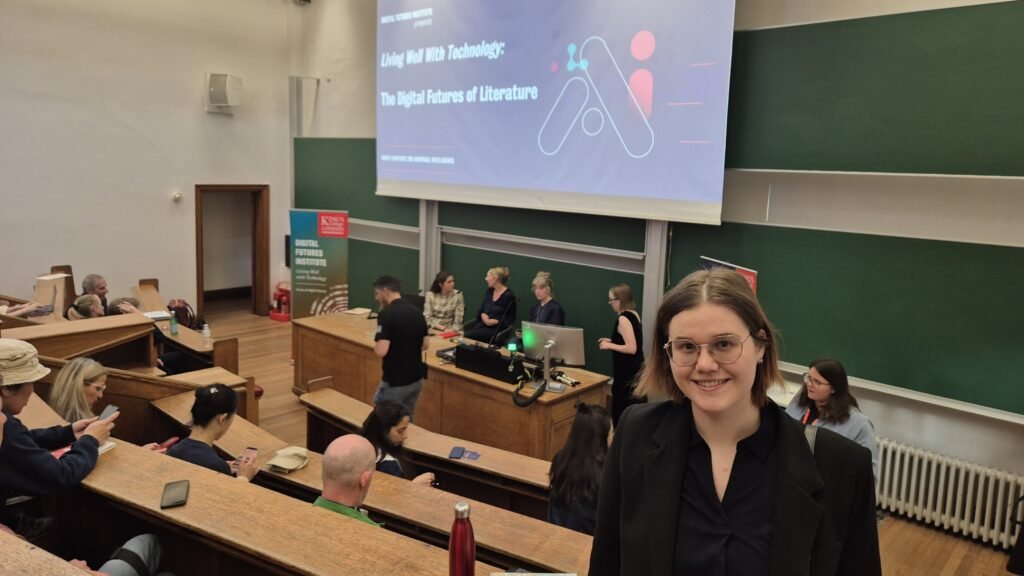Last night’s panel at King’s College left me with more questions than answers—which feels appropriate given the subject matter. As the speakers dissected AI’s impact on literature, I found myself thinking about the uncanny parallels between machine-generated text and the mysterious letters that drive my novel “Anonymous Letters.”
Dr Collett’s observation about AI’s “convincing mimicry” struck particularly close. In my novel, Anna struggles to distinguish authentic communication from elaborate deception. Sitting in that lecture hall, watching demonstrations of AI-generated prose, I realized we’re all becoming Annas now—readers forced to interrogate the authenticity of every text we encounter.
Professor Lively’s discussion of narrative authority resonated deeply. If machines can replicate the surface patterns of human expression, what makes our voices distinctly ours? The question isn’t merely technical but existential. In “Shattered Horizons of Tarveran,” I explored how reality itself becomes unreliable; now we face a world where the very concept of authorship grows equally unstable.
The most unsettling moment came during the Q&A when someone asked whether AI might eventually write better novels than humans. Dr Perry’s response—that literature’s value lies not in technical perfection but in the messy complexity of human experience—felt both reassuring and fragile.
Walking back through London afterward, I noticed myself reading every advertisement, every sign, with new suspicion. In our rush to embrace these tools, are we prepared for a world where every text carries the shadow of uncertainty?
The conversation continues.
— Writer Anastasia Dubinina
